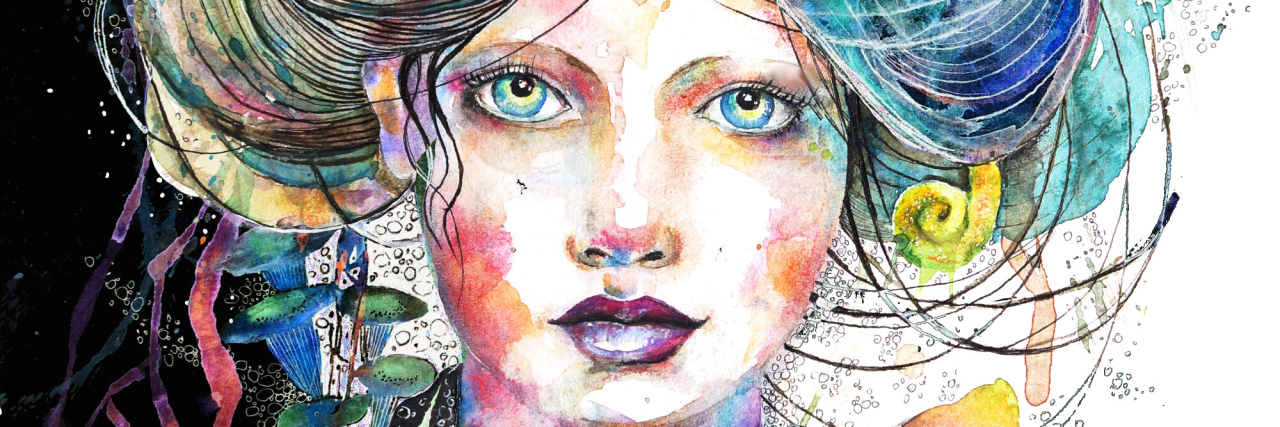When Your Borderline Personality Disorder Hurts the Ones You Love
Editor's Note
If you struggle with self-harm or experience suicidal thoughts, the following post could be potentially triggering. You can contact the Crisis Text Line by texting “START” to 741741. For a list of ways to cope with self-harm urges, visit this resource.
My husband has told me for years that I need to seek therapy for my sudden mood changes. Because I’d been experiencing these mood swings for years, they were a regular part of my life and I considered them normal. I know it sounds selfish, but I never considered their effect on those around me until one of my third grade students wrote an apology to me.
The letter said she was sorry the class had been so disrespectful and that they loved me and hoped I felt better soon. When I asked her why she thought I felt bad she replied that she could tell by “the way I was acting.”
I felt a lump the size of a fist slowly rise up in my throat as I thought about her words. On the ride home from school that afternoon, I asked my sons about my moods. They both admitted they were often hurt by my moods, especially when they were accompanied by hysterical crying or fits of rage.
It was like a slap in the face to hear the two people I loved most in the world talk about the different moods they noticed and how they characterized each.
I promised myself then I would control my moods. I swore they would not have such harmful effects on those I loved and I really meant it. The problem is, I couldn’t control my moods. They were like separate beings that took over at their own will. I wasn’t able to stop my moods from emerging and as a result, I continued to hurt those I loved the most. The resulting feelings of guilt and shame I felt led me to develop terrible coping skills: self-harm and excessive shopping. I’d cut myself or bash my head against something hard — or I’d skip paying a few bills and buy $300 worth of clothes and shoes instead. It was an unending cycle of moods, guilt, harmful coping, more guilt, moods…
In December of 2017, I finally lost control of all of my emotions and had a nervous breakdown. After a few weeks of intensive therapy, my doctor was able to diagnose me with borderline personality disorder (BPD). I’d never heard of it but that day, I started researching. I was determined to beat this beast, now that it had a name.
What I found was disappointing to say the least: you can’t always “beat” BPD, but you can learn to cope with it. After falling into a two week long dark space while trying to understand how something inside my own mind could have such power over me, I began to take baby steps to heal. Some of the early coping skills that helped me most were:
- Prayer/meditation
- Yoga
- Music
- Art therapy
- Popping a rubber band on my wrist
- Squeezing ice
As I continued therapy, I learned many more coping skills and have practiced them daily. So far, what’s helped me the most is giving my BPD a name. It helps me visualize my BPD as part of me, but not the part that’s in control. When the BPD starts to take over and I realize it, I can talk to it and tell it to get back in its space. It sounds crazy, I know, but it feels better than seeing pain in the eyes of those you love because of something you’ve said or done.
Make no mistake: BPD can be monster. It can consume your soul and turn you into a total stranger if you let it. There are still times my BPD may win a battle, and that’s OK because when I lay my head down at night, I know I’ve fought my hardest and still have the upper hand on the battlefield.
Getty Images photo via Dreya Novak

